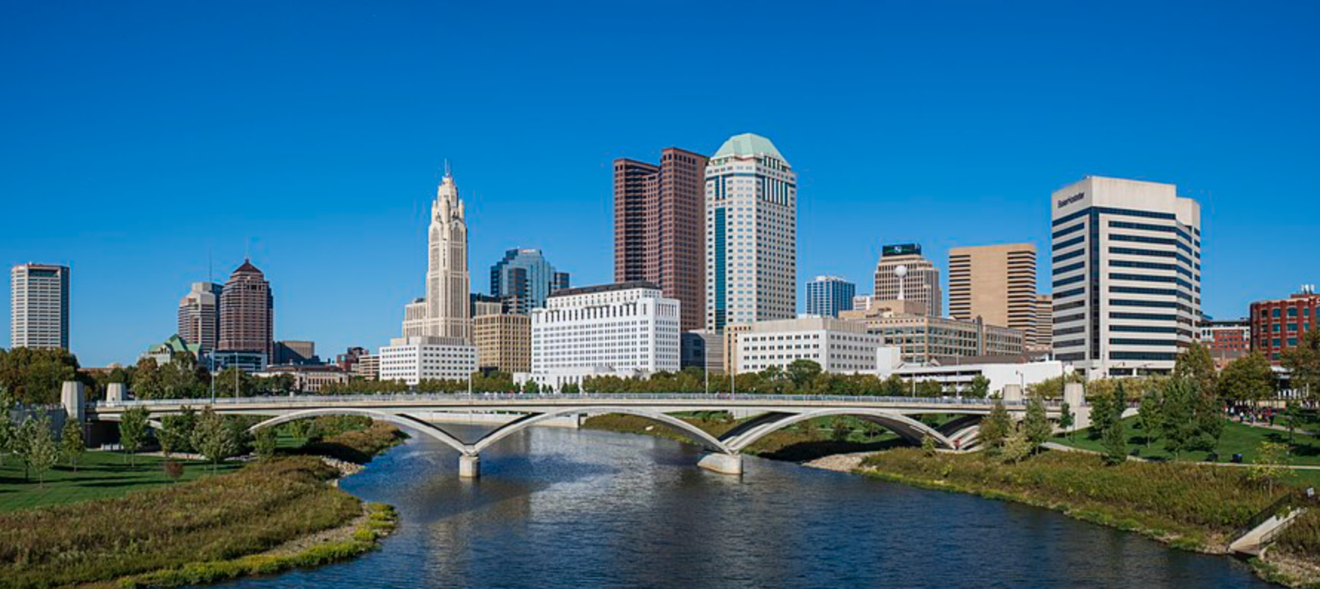In the last five years, Columbus, Ohio, has lived up to its namesake, acting as an explorer. Armed with a significant Department of Transportation grant and other funds, this university city tested mobility solutions and worked to discover how transportation can be more efficient, inclusive and safe.
Smart Columbus, as the program was called, ended in June, along with its funding. A broader program called Columbus Partnership has been established to continue the work and take up the smart city mantle, building on the significant learnings of its predecessor. This year Columbus was ranked the nation’s second smartest city.
We spoke with civil engineer Mandy Bishop, who led Smart Columbus, to discuss lessons other smart city engineering teams might take from her unique experience studying and implementing mobility and smart city solutions.
A lot of cities are trying to get ahead of the curve when it comes to smart transportation. Based on your experiences in the last five years, any tips you would offer to cities just starting on this journey?
Look at the challenges facing your community regarding transportation and mobility, explore them with your residents and businesses, and then explore solutions and align technology or newer solutions like rideshare and micro-mobility to help you solve those challenges.
Smart Columbus had tens of millions of dollars dedicated to its initiative. Why was this money vital to your efforts?
Through the $50 million Smart City Challenge awards and $19 million in city, state and county cost-share, Columbus has deployed the most comprehensive portfolio of emerging mobility technologies of any city in five years. For us, the $50 million and our $19 million in cost-share is seed money and a springboard that launched an innovation initiative in our region.
The award helped us deploy autonomous vehicles delivering over 130,000 meals and 15,000 masks, launch a trip planning application called Pivot that brought 20,000 more jobs and 3,000 more healthcare services into reach of transit riders. For us, the award helped us serve our residents in new and better ways.
Columbus is now a global leader in smart city innovation and has written a playbook for cities around the country to follow. Eden Strategy Institute recently named Columbus eleventh in its global ranking of smart cities, and second in the US just behind New York City. Delegations from more than 80 cities and 20 countries have come to Columbus to learn from our best practices.
What were some of the biggest challenges of this endeavor?
Well, a global pandemic was not on our radar. All kidding aside, this program was extremely diverse. The program included connected and autonomous vehicles, mobility applications, infrastructure like smart mobility hubs. We demonstrated a lot of amazing technology. Intelligent technology is relatively new and our team of traditional transportation engineers came ready to deliver. However, we also had to learn the technology.
So I would say the biggest challenge (pandemic aside) was transitioning our engineers from speaking streets, bikeways and bridges to speaking tech, and they stepped up to the challenge. It was both fun and rewarding to watch them transition and learn. It was also amazing to watch them interact with our residents in order to develop these projects in a human-centered way. We really wanted to serve our residents with this demonstration and not just demonstrate tech for tech’s sake.
Your website lists several Smart Columbus accomplishments. Which are you most proud of?
Developing a program that put residents first! That being said, we deployed our Mobility Assistance for People with Cognitive Disabilities application called WayFinder by AbleLink Technologies. This application allowed one of our participants, Jose, to be more confident on fixed route transit (bus) and experience new places like the North Market – a multi-cultural space that has lots of amazing food and shops. North Market is a 145-year-old vibrant public market made up of Ohio’s best independent merchants, farmers, and makers.
Mandy Bishop serves as Deputy Director of Public Service assigned as the Smart Columbus Program Manager. She joined the City of Columbus in July 2017. She uses her 22 years of industry experience with an emphasis on complex project management to lead the delivery of USDOT, Vulcan and American Climate Change Challenge grant funded programs. Bishop holds a bachelor’s degree in civil engineering from The Ohio State University and is a registered Ohio professional engineer.
